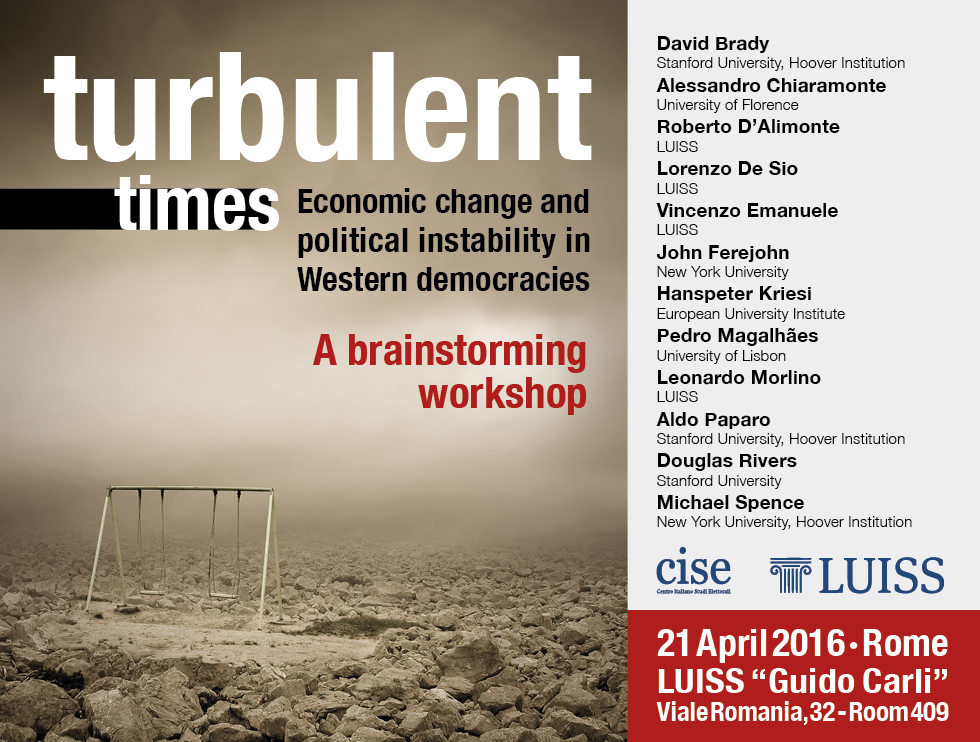On April 21st, at LUISS Guido Carli, the CISE convened a panel of international scholars to attend a one-day brainstorming workshop on the feasibility of a research agenda dedicated to the increasing political instability across Western countries, and its relationship with economic change in recent decades. The program featured, among scholars from top international institutions (see below), the presence of Nobel laureate Michael Spence. (canablue.com)
Presenters:
David Brady, Stanford University, Hoover Institution
Alessandro Chiaramonte, University of Florence
Roberto D’Alimonte, LUISS
Lorenzo De Sio, LUISS
Vincenzo Emanuele, LUISS
John Ferejohn, New York University
Hanspeter Kriesi, European University Institute
Pedro Magalhães, University of Lisbon
Leonardo Morlino, LUISS
Aldo Paparo, Stanford University, Hoover Institution
Douglas Rivers, Stanford University
Michael Spence, New York University
Workshop program and selected downloadable materials:
Introductory remarks
David Brady and Roberto D’Alimonte
Panel 1
Economics in a Time of Political Instability
Michael Spence
PPT
Industrial Decline and Political Instability in Western Democracies
David Brady, Aldo Paparo and Douglas Rivers
PPT
Restructuring the West European Party Space in the Great Recession: Continuity and Change
Hanspeter Kriesi, Swen Hutter and Jasmine Lorenzini
PAPER
PPT
Panel 2
How the Economic Crisis Is Reshaping Democracy in Southern Europe
Leonardo Morlino
PPT
Economic and Political Instability and Dissatisfaction with Government
David Brady and Aldo Paparo
PAPER
PPT
Economic Performance and Political Support: What Moderates this Relationship?
Pedro Magalhães
(preliminary data and findings – no materials available)
Panel 3
From Dead Calm to Adventurous Waters. Explaining Party System (De-)institutionalization in Western Europe (1945-2015)
Alessandro Chiaramonte and Vincenzo Emanuele
Attitudes Toward Immigration and Vote Choice in Seven Countries
David Brady, John Ferejohn and Aldo Paparo
PAPER
Political Instability in the Western World: Sketching a Research Agenda
Roberto D’Alimonte, Lorenzo De Sio and Vincenzo Emanuele
PPT
General discussion
Concluding remarks
Michael Spence
